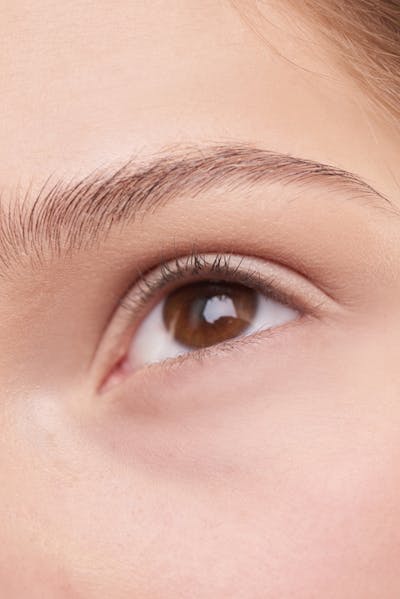Visitors have accessed this post 136 times.
Introduction:
The human eye is susceptible to various issues, including eye bags, puffy eyes, wrinkled eyes, and dark circles. These problems arise due to multiple factors such as sleep deprivation, stress, inadequate water intake, prolonged exposure to electronic devices, excessive sunlight, thyroid imbalances, frequent eye rubbing due to allergies, and genetic predisposition. Additionally, a high intake of salty foods can lead to puffy eyes due to salt’s water-absorbing nature, resulting in the accumulation of excess fluid beneath the eyes.
Lower eyelid aging:
The thickness of skin around the eye is 0.3 millimeter only. The distance between eye lid and cheek should be shorter. If it is longer means it will look like a hollow. The lower eyelid aging can be caused because of loss of fat or excessive accumulation of fat. So it is a combination of excessive soft tissues and deficiency of fat. So that lower eyelid will be shown as, darkend and tired. There are 3 types of wrinkles.
• Dynamic wrinkles: It is caused when we move our face while smiling and doing some reactions on our face.
• Permanent wrinkles: Even if we are not moving our face it will be shown.
• Folding: While we aging the skin of our face becomes saggy then it will cause foldings around there.
Several factors contribute to these eye issues:
• Morning Swelling: Upon waking up, fluid accumulation can cause eye swelling. A remedy involves rubbing hands together, then gently pressing them against closed eyes, followed by blinking 10 to 15 times and tightly closing and opening the eyes.
• Water Retention: Consuming salty foods, smoking, alcohol, and allergies leading to inflammation in small blood vessels can contribute to water retention.
• Thyroid Imbalance: Disruptions in thyroid hormones can cause under-eye puffiness.
• Digestion and Collagen: Inadequate digestion hampers collagen absorption, leading to wrinkles. Collagen supplements are beneficial, but effective absorption is vital.
• Fat Intake: Insufficient fat consumption can contribute to these issues. Daily intake should be proportional to one’s weight, with half being plant-based and half animal-based.
• Vitamin A: Insufficient intake or poor absorption of vitamin A can result in wrinkles and fine lines.
• Friction: Frequent eye rubbing, whether due to allergies or habit, can cause wrinkles, in the thin, sensitive skin under the eyes.
• UV Rays: Exposing the eyes to sunlight without protective eyewear can lead to wrinkles and fine lines.
• Aging: Natural aging processes also contribute to the development of wrinkles.
Treating these issues involves various methods:
• Cold Compress: Dilated blood vessels can cause eye bags, and a cold compress can constrict them. This can be achieved using cucumber slices, chilled spoons, or tea bags. The caffeine and antioxidants in tea bags aid in constricting blood vessels.
• Good Digestion: Consuming fiber-rich foods and leafy greens supports good digestion and metabolism.
• Exercise: Regular exercise enhances metabolism, aiding in the absorption of essential nutrients from food.
• Balanced Diet: A well-balanced diet ensures adequate intake of vitamins, fiber, protein, and fats.
By addressing these factors and following appropriate treatments, individuals can reduce the occurrence of eye-related problems such as bags, puffiness, wrinkles, and dark circles.
Collagen:
Incorporating foods rich in collagen is essential. Additionally, consuming foods containing vitamins A and C is important. These foods include bell peppers, berries, Indian gooseberry (amla), kiwi, papaya (which also contains keratin vital for skin health and digestion), guava (rich in vitamin C and aiding digestion), garlic, cashews, and beans. These collagen-rich foods should be consumed as the balanced diet.
Diet:
Tomato: A source of antioxidants, tomatoes contain lycopene which safeguards blood vessels and supports eye circulation. They also offer vitamin C, potassium, and vitamin K for healthy skin.
Cucumber: Beneficial for skin rehydration and collagen production, cucumber contains vitamins A, E, K, and C, enhancing blood vessel elasticity.
Watermelon: Abundant in antioxidants and beta-carotene, watermelon contributes to eye health.
Blueberries: With omega-3, vitamins C, K, and manganese, blueberries aid eye circulation and protect blood vessels.
Vitamin E: Countering enzymes that diminish skin elasticity and combating free radicals causing wrinkles, vitamin E can be found in almonds, peanuts, sunflower seeds, spinach, and broccoli.
Green Vegetables: Broccoli and spinach, rich in vitamin K, enhance skin circulation, reduce puffiness, and promote skin health.
Orange: Packed with vitamins C and A, oranges promote collagen production and free radical elimination.
Beetroot: With nitrate, magnesium, and vitamin C, beetroot helps diminish dark circles.
Papaya: Offering vitamins A, C, and magnesium, papaya reduces dark circles and enhances skin clarity.
Water: Reducing puffiness and dark circles, water also lessens salt concentration around the eyes.
Conclusion:
Application of potato, tomato, lemon, almond oil, or Aloe Vera gel beneath the eyes yields positive results. Stress reduction, adequate sleep (8 hours), wearing sunglasses outdoors, and addressing thyroid concerns are vital. While aging contributes to eye wrinkles, following these practices in early life can help prevent issues like wrinkles and dark circles.
